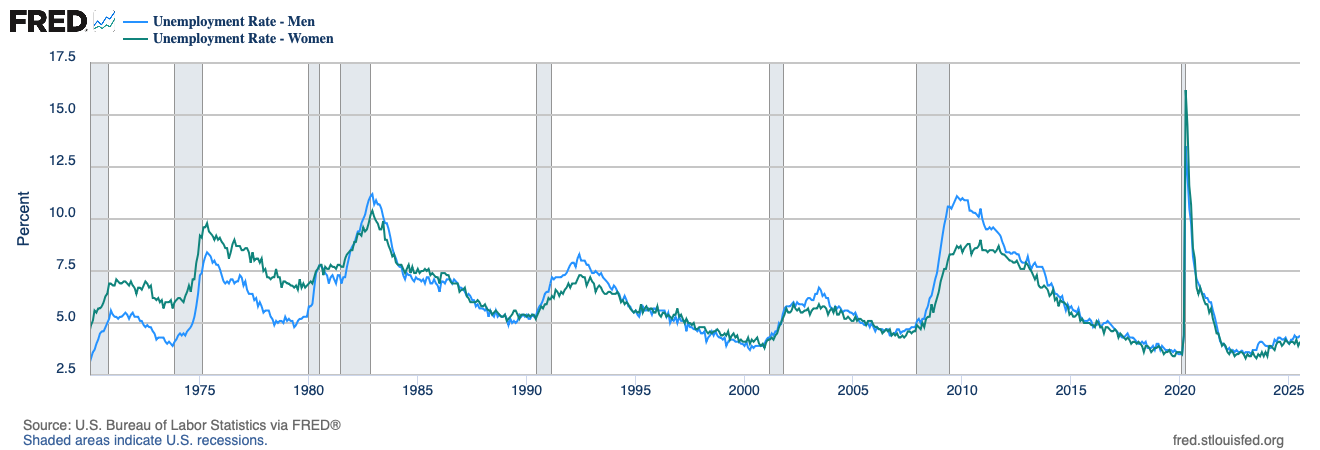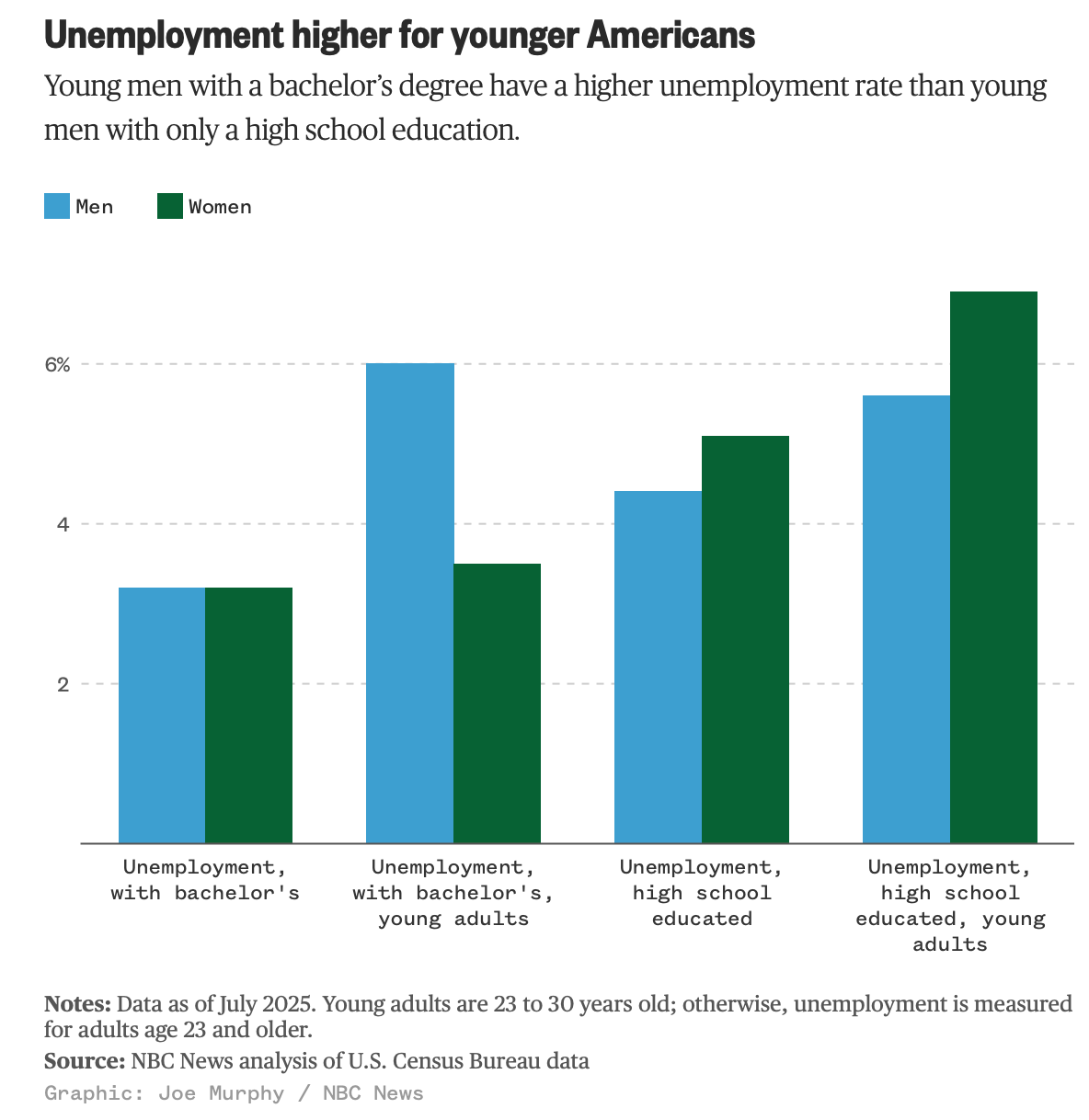He-Cession or Canary in the Coal Mine?
Labor Market Changes
A troubling shift is showing up in the labor market: young men are falling behind.
Men ages 23–30 with a bachelor’s degree are experiencing an unemployment rate of 6%. That’s not only higher than the rate for women with bachelor’s degrees (3.5%), it’s even higher than the unemployment rate for men with only a high school diploma (4.4%).
For decades, higher education was seen as a shield against unemployment. But for young men today, that shield is looking weaker. The question is: why?
Occupational Choice and Risk Exposure
One explanation is rooted in industry selection. Women have historically gravitated toward the care economy and service-based jobs. Think healthcare and education, sectors often criticized for lower pay, but also less volatile during downturns.

By contrast, men are more likely to pursue higher-paying fields tied to industries that swing with the business cycle. When the economy slows or uncertainty rises, those jobs are often the first on the chopping block. But that doesn’t explain why unemployment for educated men is increasing at a fast rate than employment for all men. What might be causing that divergence?
Skills, AI, and Industry Shifts
Layer on the disruption from AI, and the picture gets even messier.
Entry-level and white-collar jobs, many dominated by younger men, are increasingly vulnerable to automation. Employers are shedding workers with limited experience, while industries that rely on human interaction, like healthcare, education, and personal services, remain more stable, at least for now.
And let’s not forget the broader climate: high political and economic uncertainty is keeping firms cautious about hiring. That hesitation disproportionately affects younger workers who are just trying to break in.
The Future of Work and Higher Education
It is easy to chalk this up as a problem for younger men, but there is more to it. It’s a warning sign about the future of work.
Higher education can no longer afford to equate “degree earned” with “job security.” What employers need, and what students and industry should demand, are workforce-ready skills: critical thinking, leadership, communication, and adaptability. These are the traits that AI can’t easily replace and are needed to navigate a world with AI. Content-based education is essential, but it is improved with skill-based acquisition. They develop transferable skills that allow them to be mobile across industries. This approach helps workers weather economic volatility.
Bottom Line
The rise in unemployment among young men may be a he-cession, but it could also be a canary in the coal mine. If even college-educated men are struggling, it signals deeper cracks in how our labor market and higher education systems are aligned.
The takeaway for all of us? A diploma is a starting point, but strategic investments in skills are necessary. The future belongs to workers who can adapt, think critically, and bring distinctly human skills to an economy in flux.
Written by- Dr. Jeni Al Bahrani and Dr. Abdullah Al Bahrani





If men tend to enter higher paying jobs that are more tied to the business cycle, would it also be true that they would be more impacted by changing technology....and not just thinking of AI here, though that is huge, but also previous technology changes. In my career we needed a lot of actuaries. I imagine AI has significantly cut down on that demand. So not only are fewer hired, that lower demand has a negative wage impact as well.
We do next to nothing to retrain or guide workforce choices as these macro shifts present themselves, we leave the market to work this out. The market does, though it can be brutal. In the interim we create a lot of disaffected, a lot of anger, and there is a huge social price to pay.
Does not feel like anything as simple as a he-recession.
Thought provoking post! thanks!
Very insightful! Recently, I’ve seen a lot of analysis on the elimination of “entry level” roles worldwide. The world is clearly changing in many ways, so I really resonated with the mention of adaptability. Young professionals -men and women- must find unique opportunities to get their foot in the door, instead of searching for the perfect job. Notably, that shouldn’t equate to settling for one’s entire career, rather not wasting time on that entry level unicorn. I’m currently on that pursuit and I’m growing my patience when it comes to career momentum. Thanks for sharing!